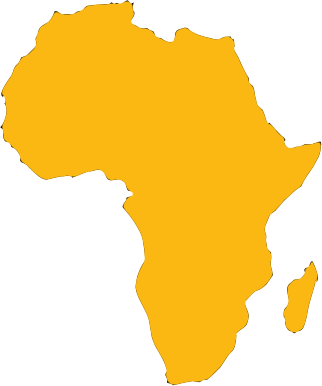The Reality of Ramaphoria: From Dawn to Sunset?
By Musa Mdunge
Last week Thursday President Cyril Ramaphosa gave his fifth State of the Nation Address (SONA). For the first time since 1994, the SONA was without the fan fair and fashion that colours the most important political speech of the year. Moreover, the need to ensure with covid-19 regulation meant that only a select number of members of Parliament were allowed in the chambers, with the rest only joining online. The times are different, and the expectation was that Ramaphosa would deliver a speech to match the uncertainties and challenges of the times.
In 2018, following the recall of President Jacob Zuma on the week of SONA, led to Ramaphosa selling the nation the narrative of a “new dawn”. He aimed to bring about an age of responsible government and economic reforms after a decade of
state capture and poor economic management. However, in articles that have written before, I asked the question in previous articles whether Ramaphosa, the seasoned negotiator could himself transform into a decisionmaker in an era where his rise to power at the 2017 NASREC elective conference, was a compromise between two poles of power within the African National Congress (ANC). Alas, it seems that 3 years into power, the President still finds himself negotiating his ability to lead the country towards the promises he first made in 2018.
Moreover, his job has been made more difficult due to the covid-19 pandemic and its socio- economic impact in South Africa. However, his speech failed to offer new ideas to meet the changes covid-19 has brought into our lives. While offering to remove barriers of entry for businesses seeking to invest in South Africa, he declared that load shedding would be with us until 2025. In 2018 he told the nation that load shedding would be a thing of the past 2021, yet the day before the SONA, South
Africa faced stage three load shedding. What a contradiction! Time and time again, economists, political analysts, risk analysts, and energy specialists have long argued that Eskom’s inefficiencies pose the single biggest threat to South Africa’s economic recovery.
The failure to keep the lights on means investment in South Africa remains unrealistic in the short to medium term. What we
needed to see was the government supporting a framework beyond independent power producer’s contribution to the national grid. Companies that have the capacity and would like to produce independent electricity for their operations must be given the licenses to do that with little red tape and possibly with some form of tax rebates. The President spoke about the need for water security, which in times of a pandemic, is a necessity. However, the solution is to establish a national water
agency. In a time where the government is failing to exercise oversight over the many public agencies and state-owned entities (more than 700 for that matter), why would it add another agency? The government would better serve to strengthen
existing water boards and ensure the department of water and sanitation’s capacity is sharpened to better manage our water resources and the delivery of clean drinking water to the poorest of the poor.
The biggest challenge the President has is to convince the nation that he is capable of being an effective leader. The embarrassment of the AstraZeneca vaccines that expire in April, yet clinical data shows that it is ineffective on the South African mutation of covid-19 put to question, South Africa’s vaccine plan and the path to economic recovery. There can be no doubt that the longer the delays in rolling out vaccines, the great the risk of further dangerous mutations of the virus, the need to continue hard lockdowns, and the increase in economic challenges.
It must dawn on the Ramaphosa administration that this continued path of weak economic growth, means our sovereign risk projection will remain HIGH in the short to medium term as government borrowing continues to outpace tax revenue. It will
be interesting to see in the upcoming budget speech by Finance Minister, Tito Mboweni, whether the government can introduce a substantial stimulus of new money in the economy and what legislative and regulatory changes will be made to
drive new investment in the economy. The president needs to do four things, provide an effective vaccination plan and path
to normalisation, provide a sensible plan on dealing with Eskom but also diversify energy production and distribution in the hands of private companies beyond the IPPs.
Moreover, he needs to where economic policy flows, is it the National treasury job to set out economic policy planning and implementation? If so, what is the role of the department of economic development, trade, and industry? Lastly, he needs to
deal with corruption, a task made difficult by the Zuma/Magashule camp daring the president to push for harsher sanctions of those accused of corruption.
His is an uneasy task. He is, as I have argued before the only ANC president to be elected to the post with the weakest level of support and an NEC that reflects a compromise between two centres of power. He does not fully control Luthuli House
and therefore his mandate to govern the Union Buildings is built on the foundation of compromise and he seems still unsure of himself. He seems stuck between thinking big and being stuck in his political limitations. Can the negotiator become the crisis leader South Africa needs or has the dawn already set?
Article Tags
 Africa
Africa Education
Education Joburg
Joburg South Africa
South Africa Greatest Africans
Greatest Africans Africa
Africa Education
Education Joburg
Joburg South Africa
South Africa Greatest Africans
Greatest Africans